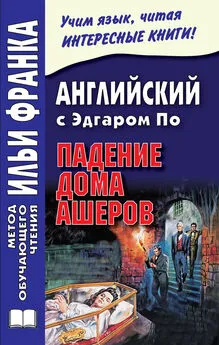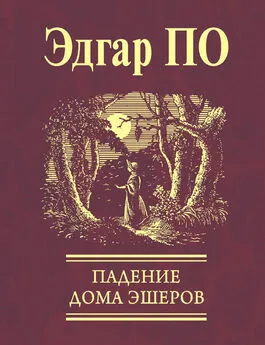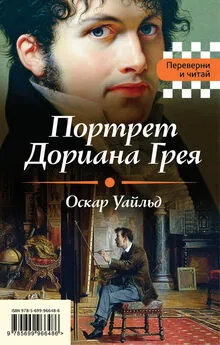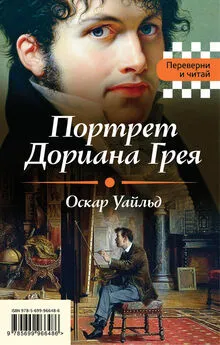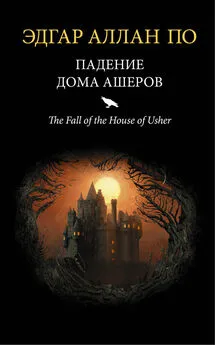Эдгар По - Английский с Эдгаром По. Падение дома Ашеров / Edgar Allan Poe. The Fall of the House of Usher
- Название:Английский с Эдгаром По. Падение дома Ашеров / Edgar Allan Poe. The Fall of the House of Usher
- Автор:
- Жанр:
- Издательство:Литагент «Восточная книга»1243df63-7956-11e4-82c4-002590591ed2
- Год:2012
- Город:Москва
- ISBN:978-5-905971-35-8
- Рейтинг:
- Избранное:Добавить в избранное
-
Отзывы:
-
Ваша оценка:
Эдгар По - Английский с Эдгаром По. Падение дома Ашеров / Edgar Allan Poe. The Fall of the House of Usher краткое содержание
В предлагаемый сборник вошли мистические новеллы Эдгара Аллана По (1809–1849), повествующие о самых темных и загадочных сторонах человеческой натуры. Рассказы адаптированы (без упрощения текста оригинала) по методу Ильи Франка. Уникальность метода заключается в том, что запоминание слов и выражений происходит за счет их повторяемости, без заучивания и необходимости использовать словарь.
Пособие способствует эффективному освоению языка, может служить дополнением к учебной программе. Предназначено для широкого круга лиц, изучающих английский язык и интересующихся английской культурой.
Английский с Эдгаром По. Падение дома Ашеров / Edgar Allan Poe. The Fall of the House of Usher - читать онлайн бесплатно ознакомительный отрывок
Интервал:
Закладка:

 In my case, the primary object was invariably frivolous , although assuming, through the medium of my distempered vision, a refracted and unreal importance. Few deductions, if any, were made; and those few pertinaciously returning in upon the original object as a centre.
In my case, the primary object was invariably frivolous , although assuming, through the medium of my distempered vision, a refracted and unreal importance. Few deductions, if any, were made; and those few pertinaciously returning in upon the original object as a centre.
The meditations were never pleasurable(эти размышления никогда не были приятными) ; and, at the termination of the reverie(и при окончании забытья) , the first cause, so far from being out of sight, had attained that supernaturally exaggerated interest(/его/ первопричина – столь далеко от того, чтобы быть = пропадать из вида – приобретала тот сверхъестественно преувеличенный интерес) which was the prevailing feature of the disease(который был преобладающей чертой этой болезни) . In a word, the powers of mind more particularly exercised(одним словом, силы разума, особенно задействованные) were, with me, as I have said before, the attentive (были у меня, как я сказал прежде, внимательными = способностью ко вниманию) , and are, with the day-dreamer, the speculative (а у мечтателя – рассудительными = способностью к рассуждению).

 The meditations were never pleasurable; and, at the termination of the reverie, the first cause, so far from being out of sight, had attained that supernaturally exaggerated interest which was the prevailing feature of the disease. In a word, the powers of mind more particularly exercised were, with me, as I have said before, the attentive , and are, with the day-dreamer, the speculative .
The meditations were never pleasurable; and, at the termination of the reverie, the first cause, so far from being out of sight, had attained that supernaturally exaggerated interest which was the prevailing feature of the disease. In a word, the powers of mind more particularly exercised were, with me, as I have said before, the attentive , and are, with the day-dreamer, the speculative .
My books, at this epoch, if they did not actually serve to irritate the disorder(мои книги в ту пору, если они и не служили к тому, чтобы растравлять мою болезнь; actually – действительно; на самом деле; вообще ) , partook, it will be perceived, largely, in their imaginative and inconsequential nature, of the characteristic qualities of the disorder itself(разделяли, как будет замечено, в большой степени, по своей образной и непоследовательной природе, характерные качества самой болезни; to partake of – разделять, иметь примесь; to perceive – воспринимать, понимать; large – большой; largely – в большой степени ).
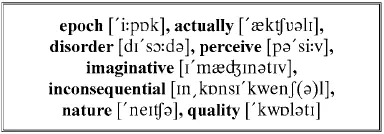
 My books, at this epoch, if they did not actually serve to irritate the disorder, partook, it will be perceived, largely, in their imaginative and inconsequential nature, of the characteristic qualities of the disorder itself.
My books, at this epoch, if they did not actually serve to irritate the disorder, partook, it will be perceived, largely, in their imaginative and inconsequential nature, of the characteristic qualities of the disorder itself.
I well remember, among others, the treatise of the noble Italian, Coelius Secundus Curio, “De Amplitudine Beati Regni Dei(я хорошо помню, среди прочих, трактат благородного итальянца Целия Секунда Куриона, «О величии блаженного царства Божия»; лат. ) ;” St. Austin’s great work, the “City of God(великий труд Блаженного Августина, «О граде Божием»; St. = Saint – святой [5]) ;” and Tertullian’s “De Carne Christi(и «О плоти Христа» Тертуллиана) ,” in which the paradoxical sentence(в котором парадоксальная фраза) “Mortuus est Dei filius; credible est quia ineptum est: et sepultus resurrexit; certum est quia impossibile est(«Сын Божий умер: это бесспорно, ибо нелепо. И, погребённый, воскрес: это несомненно, ибо невозможно»; лат. ) ,” occupied my undivided time, for many weeks of laborious and fruitless investigation(занимала мое неразделенное время = всецело занимала мое время , много недель кропотливого и бесплодного исследования).

 I well remember, among others, the treatise of the noble Italian, Coelius Secundus Curio, “De Amplitudine Beati Regni Dei;” St. Austin’s great work, the “City of God;” and Tertullian’s “De Carne Christi,” in which the paradoxical sentence “Mortuus est Dei filius; credible est quia ineptum est: et sepultus resurrexit; certum est quia impossibile est,” occupied my undivided time, for many weeks of laborious and fruitless investigation.
I well remember, among others, the treatise of the noble Italian, Coelius Secundus Curio, “De Amplitudine Beati Regni Dei;” St. Austin’s great work, the “City of God;” and Tertullian’s “De Carne Christi,” in which the paradoxical sentence “Mortuus est Dei filius; credible est quia ineptum est: et sepultus resurrexit; certum est quia impossibile est,” occupied my undivided time, for many weeks of laborious and fruitless investigation.
Thus it will appear that(вот так и кажется, что) , shaken from its balance only by trivial things, my reason bore resemblance to that ocean-crag spoken of by Ptolemy Hephestion(выводимый из равновесия лишь тривиальными вещами, мой рассудок носил = имел сходство с тем океанским утесом, о котором говорил Птолемей Гефестион; to shake – трясти; to bear – носить ) , which steadily resisting the attacks of human violence, and the fiercer fury of the waters and the winds(который, твердо сопротивляясь атакам человеческой силы и еще более свирепой ярости вод и ветров; violence – насилие, жестокость, сила; fierce – яростный, свирепый; fiercer – более яростный, яростнее ) , trembled only to the touch of the flower called Asphodel(сотрясался лишь от прикосновения цветка, называемого Асфодель).
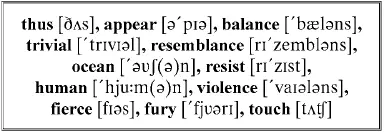
 Thus it will appear that, shaken from its balance only by trivial things, my reason bore resemblance to that ocean-crag spoken of by Ptolemy Hephestion, which steadily resisting the attacks of human violence, and the fiercer fury of the waters and the winds, trembled only to the touch of the flower called Asphodel.
Thus it will appear that, shaken from its balance only by trivial things, my reason bore resemblance to that ocean-crag spoken of by Ptolemy Hephestion, which steadily resisting the attacks of human violence, and the fiercer fury of the waters and the winds, trembled only to the touch of the flower called Asphodel.
And although, to a careless thinker, it might appear a matter beyond doubt(и хотя беспечному мыслителю = на поверхности могло бы показаться делом несомненным: «вне сомнения») , that the alteration produced by her unhappy malady, in the moral condition of Berenice(что перемена, произведенная ее злосчастной болезнью в нравственном состоянии Береники) , would afford me many objects for the exercise of that intense and abnormal meditation(предоставила бы мне много предметов для упражнения в том напряженном и ненормальном размышлении) whose nature I have been at some trouble in explaining(чью природу я силился объяснить: «я был в некоторой проблеме в объяснении») , yet such was not in any degree the case(но это было совсем не так: «но таково ни в коем случае не было дело»).

 And although, to a careless thinker, it might appear a matter beyond doubt, that the alteration produced by her unhappy malady, in the moral condition of Berenice, would afford me many objects for the exercise of that intense and abnormal meditation whose nature I have been at some trouble in explaining, yet such was not in any degree the case.
And although, to a careless thinker, it might appear a matter beyond doubt, that the alteration produced by her unhappy malady, in the moral condition of Berenice, would afford me many objects for the exercise of that intense and abnormal meditation whose nature I have been at some trouble in explaining, yet such was not in any degree the case.
In the lucid intervals of my infirmity(в ясные промежутки = в моменты просветления моей хвори) , her calamity, indeed, gave me pain(ее беда действительно давала = причиняла мне боль) , and, taking deeply to heart that total wreck of her fair and gentle life(и, принимая глубоко = близко к сердцу это полное крушение ее чистой и спокойной жизни) , I did not fall to ponder, frequently and bitterly, upon the wonder-working means(я не упускал случая поразмышлять, часто и горько, над чудотворными средствами; to fall – падать ) by which so strange a revolution had been so suddenly brought to pass(которыми такой странный переворот так внезапно был учинен: «приведен случиться»; to pass – проходить; протекать; происходить ).

 In the lucid intervals of my infirmity, her calamity, indeed, gave me pain, and, taking deeply to heart that total wreck of her fair and gentle life, I did not fall to ponder, frequently and bitterly, upon the wonder-working means by which so strange a revolution had been so suddenly brought to pass.
In the lucid intervals of my infirmity, her calamity, indeed, gave me pain, and, taking deeply to heart that total wreck of her fair and gentle life, I did not fall to ponder, frequently and bitterly, upon the wonder-working means by which so strange a revolution had been so suddenly brought to pass.
But these reflections partook not of the idiosyncrasy of my disease(но эти размышления не имели свойств своеобразия моей болезни; to partake of – иметь примесь чего-либо, отдавать чем-то ) , and were such as would have occurred, under similar circumstances, to the ordinary mass of mankind(и были такими, какие бы случились в похожих обстоятельствах обычной массе человечества; under – под ) . True to its own character(верная своему характеру) , my disorder revelled in the less important but more startling changes(моя болезнь = мое болезненное внимание погружалось в менее важные, но более пугающие перемены; to revel – кутить; наслаждаться; утопать в чем-либо ) wrought in the physical frame of Berenice(произведенных в физическом облике Береники) – in the singular and most appalling distortion of her personal identity(в необыкновенном и чрезвычайно ужасном искажении ее личного облика; identity – личность, индивидуальность; лицо; to distort – искажать ).
Читать дальшеИнтервал:
Закладка:
